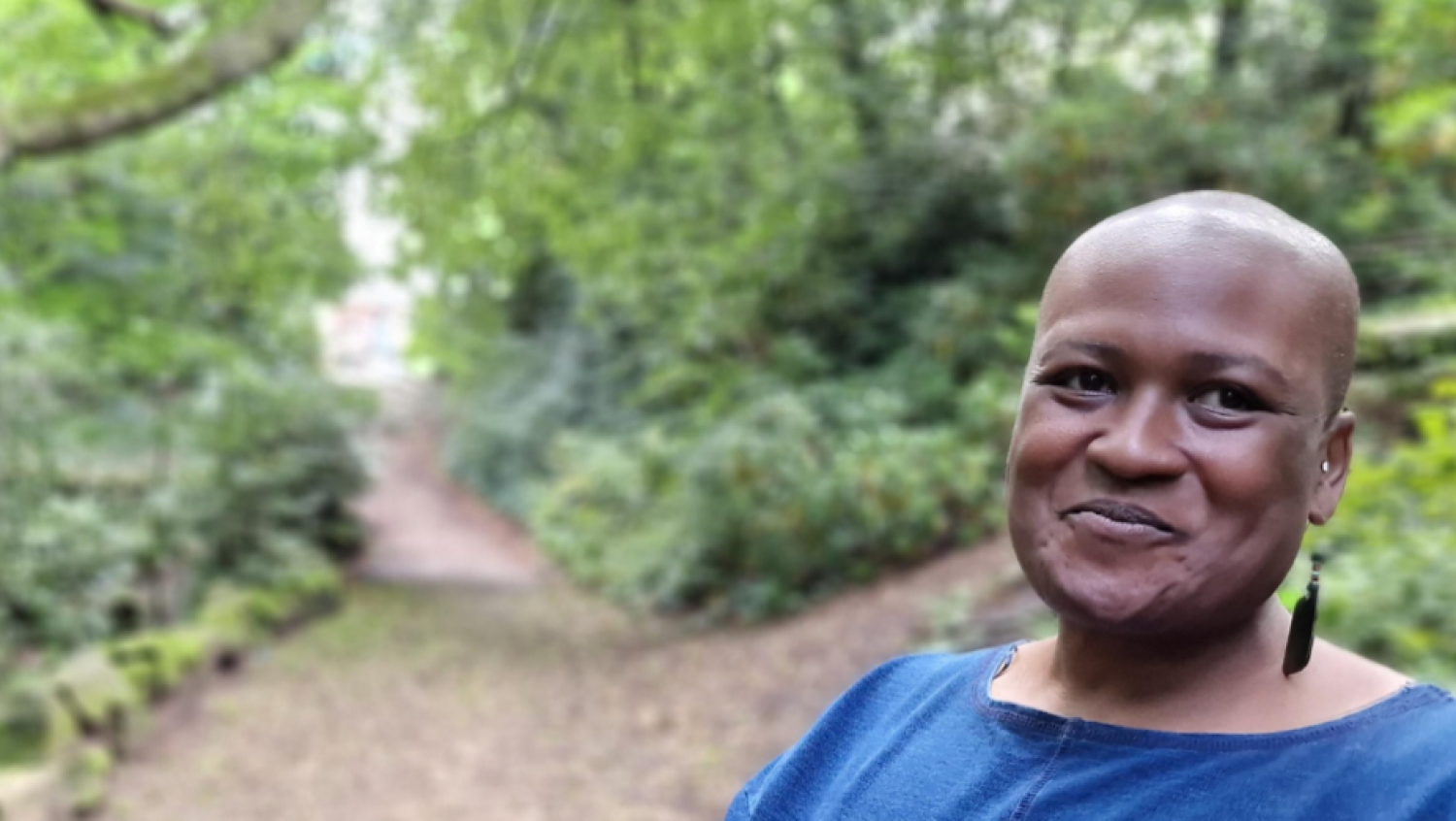Raised in Mitcham and now living in West Yorkshire, Laura D Pusey is a funeral celebrant, end-of-life practitioner, author, researcher and founder of the Federation of African Caribbean Funeral Operatives. We spoke to her about where her inspiration comes from.
When you were a child, were you aware of death? Did you talk about it at home?
When I was growing up, we spoke about death all the time. My mum was a nurse working with people with cancer, and my dad worked on the underground where there could be incidents of untimely death. It was always in the background.
Death was something we could talk about, it was part of life. As time moved on, my dad passed away. When he died, I experienced a whole new dynamic — I realised that no one had really spoken about the impact of grief.
I believe it’s necessary to talk to children about death, we need to be doing it all the time, before any kind of death appears in their lives. We need to explain what death is. They experience it in the seasons, with plants and animals, even food goes off and dies.
There are so many adults who were denied a chance to say goodbye when they were younger. Unresolved grief is a ticking time bomb. It has an impact on mental and physical health.
Personally, I think that children should be at the funeral, they should be included in decision-making at every point, they should be heard and given a voice, and validated at every step.
What is the Federation of African Caribbean Funeral Operatives and what motivated you to set it up?
In 2015, my aunt died. I spent the night with her and it was a beautiful experience. It was eye-opening — her death made me realise that those considered to be Black were not present in the funeral industry.
I tried to connect with people providing authentic cultural services when my aunt passed away, but I couldn’t find any. This started the idea of providing a means for people up and down the country to locate the services they needed and became the Federation of African Caribbean Funeral Operatives (FACFO).
It is first and foremost a directory. It’s about finding people who are doing work within grief, end of life, funeral celebrants, catering, drumming, including people who might not realise that they are providing a death-related service.
Why do you think specific services are needed for African and Caribbean communities?
When I qualified as a funeral celebrant, I went to local funeral directors and said to them, bursting with excitement, ‘I’m here’ and they were like, ‘Yeah, whatever, we’ll add you to the list’, I quickly realised that my face didn’t fit. They were only interested in Black bodies if they were dead or paying for a funeral.
When I did my death doula training — although I don’t like to use the word ‘doula’ as it comes from the Greek for ‘slave’ — the African continent was not considered, the diaspora were not addressed in the training. It was the same in my funeral celebrant training, there was no word on our cultural differences or needs.
Death is major among African and Caribbean communities. There are so many aspects that need to be catered for — but they are not now and never have been. The transatlantic slave trade stripped the diaspora of our culture, religion and identity and gave us new paradigms — in order to stay alive we had to adopt them.
We have lost so much of our identity and this is an attempt to claw it back. Everyone has something to offer, together we can work together and recreate a positive culture.
All the services in FACFO are delivered by people of African and Caribbean descent, but they are not just for African and Caribbean people. Grief and death are universal.
So much of what we create is co-opted, but with FACFO we can come together and provide the services that we need. We can add our own touches of colour and life and sound, and offer these to everyone.
What gives you satisfaction about the work that you do?
As a funeral celebrant, I enjoy doing funerals. It’s so beautiful to me to represent a family, to understand what they need and their culture. We’re all different, but coming from the same background means there are some things which they don’t have to explain to me.
I’m interested in how grief is handled by people of different cultures. There’s so much healing work to be done, dealing with the origins of grief and helping people see the gift in every death.
There is often so little consideration of the spiritual, financial and emotional impacts of grief. You are expected to go back to work and get over it. No one talks about it.
End-of-life care is a gift and an honour. It’s beautiful, interesting, tricky work. It’s rewarding and I’m very passionate about it. I’ve come on earth to do it, and when I’ve fulfilled that work, I will go very happily.
Laura spoke at our 'How to talk with children about death' panel event. Watch the panel here.
Read more interviews and personal stories on our Talking Death blog: hear from celebrant Aama Sade Shepnekhi about Rastafarian funerals or learn why Coffin Clubs are catching on.
To stay in touch with all the latest news and updates from Poppy's by email, sign up here or contact us if you need help planning a funeral.
